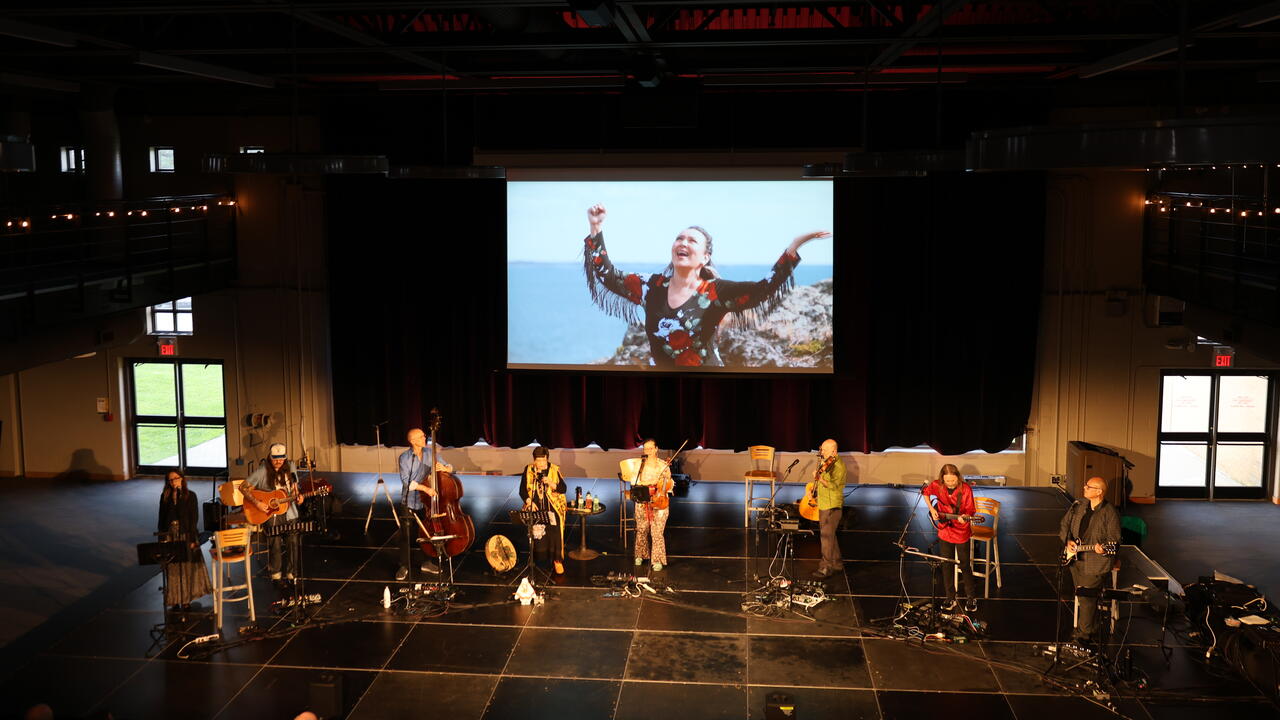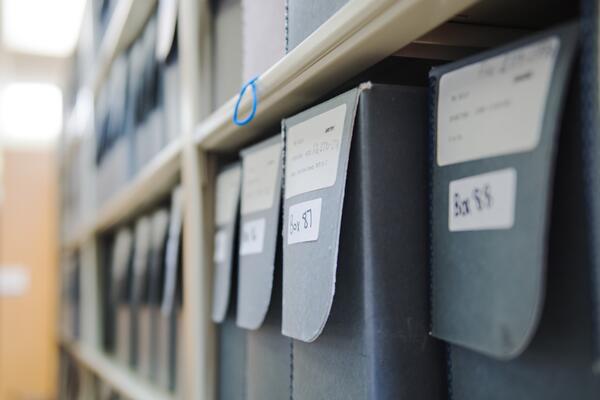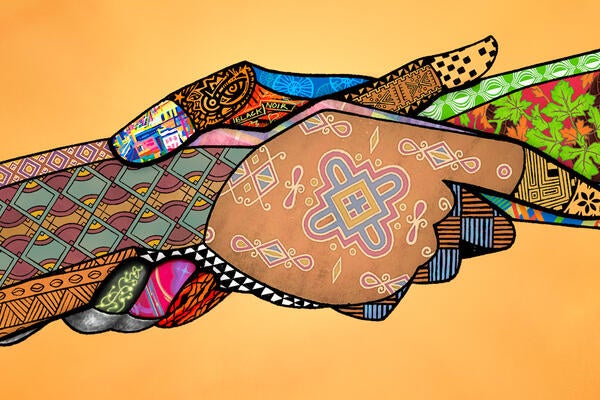
Walking Through the Fire: Truth and reconciliation through musical collaboration
Waterloo hosts Sultans of String performance in celebration of Indigenous History Month

Waterloo hosts Sultans of String performance in celebration of Indigenous History Month
By Emily Brant Office of Indigenous RelationsLocal and University of Waterloo community members were invited to gather at Federation Hall, for a beautiful display of diversity and unity in celebration of National Indigenous History Month.
The Office of Indigenous Relations (OIR) hosted a community concert featuring the Sultans of String Waking Through the Fire musical performance on Monday, June 17. The Sultans of String are three-time JUNO award nominees, who combine storytelling and music. Waking Through the Fire shares the spirit of the Truth and Reconciliation Commission’s 94 Calls to Action and Final Report, which calls for Indigenous and non-Indigenous artists to work together to show a path forward.
Walking Through the Fire is an album and live show that is a powerful collection of collaborations between the group and First Nations, Métis and Inuit artists from across Turtle Island. From Métis fiddling to an East Coast Kitchen Party, rumba to rock, to the drumming of the Pacific Northwest, the show featured Alyssa Delbaere-Sawchuk of the Métis Fiddler Quartet, Marc Meriläinen (Nadjiwan), Ojibwe/Finnish singer-songwriter, and Coast Tsm’syen singer-songwriter, Shannon Thunderbird. Special guests who joined virtually, included Elder and poet Dr. Duke Redbird, the Northern Cree pow wow group, Inuit Throat Singers Kendra Tagoona, Tracy Sarazin and more.
The North Sound duo performing on stage at Federation Hall.
Shannon Thunderbird, Coast Tsm’syen singer-songwriter, and Chris McKhool, the Sultans of String leader, performing on stage.
“We know that as a country we can’t move ahead without acknowledging and reflecting on the past,” said Chris McKhool, the Sultans of String leader. “Before reconciliation can occur, the full truth of the Indigenous experience in this country needs to be told.”
The audience was dazzled by the performance, taking in the music, storytelling, and the multi-media experience of the display screens — featuring various instruments and singers, sound effects and the sheer talent of all the artists involved. During intermission and before the show, a sense of community was clear as participants and enjoyed treats such as kettle corn and strawberry drink — a Haudenosaunee favourite. Other Indigenous-inspired foods, such as scone dogs, bologna sandwiches, and candied salmon belly were shared with audience members. Local Indigenous craft and jewelry vendors were also on site and audience members took advantage of the opportunity to shop in between sets.



Bologna sandwiches, kettle corn and salmon mousse on crackers.

Local and Waterloo community members visiting the local Indigenous vendor booths during intermission.
Jean Becker, associate vice president of OIR, reminded the crowd of the importance of celebrating the beauty and resiliency of Indigenous Peoples, our cultures, and positive contributions to the world.
At the end of the evening, Becker welcomed Elder Henry back up to the stage to give the final word.
“And now, we’re thriving,” said Elder Henry, as he compared the music that he heard to the names he says were foundational to Indigenous music. He reminded the Indigenous folks in the audience to hold their heads high. “Our people are away from that residential school; and thank you for bringing that up, but now we’re coming out and as Shannon said — be proud of who we are.”
Community member and Waterloo alumni, Karen Lillie Filiatrault, shared a caption in a social media post after the event: “Thanks to @uwaterlooindigenous for a superb community event this evening. @sultansofstring were amazing! Their multimedia approach and range coupled with storytelling is so very meaningful. Grateful to be part of a community that has such tremendous leadership to provide these opportunities for us all.”
At the event, folks were informed about the Indigenous Opportunities Fund, which supports Indigenous students at Waterloo and aids the efforts of decolonization and reconciliation on campus. If you’d like to contribute, you can make a donation online.

Read more
Upside Robotics secures new funding to accelerate the future of sustainable farming

Read more
Discover the meticulous work that uncovered Black stories on campus and preserved them for the future

Read more
A message from the President and Vice-Chancellor
The University of Waterloo acknowledges that much of our work takes place on the traditional territory of the Neutral, Anishinaabeg, and Haudenosaunee peoples. Our main campus is situated on the Haldimand Tract, the land granted to the Six Nations that includes six miles on each side of the Grand River. Our active work toward reconciliation takes place across our campuses through research, learning, teaching, and community building, and is co-ordinated within the Office of Indigenous Relations.